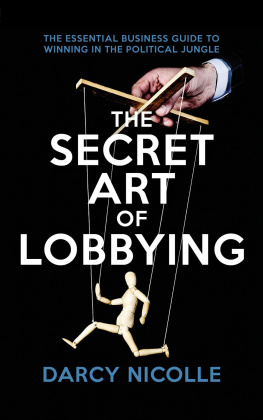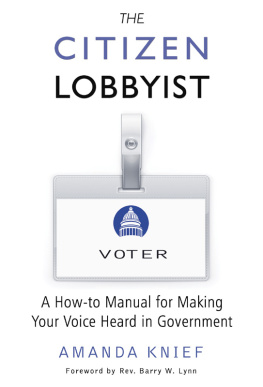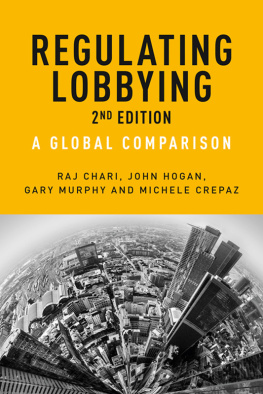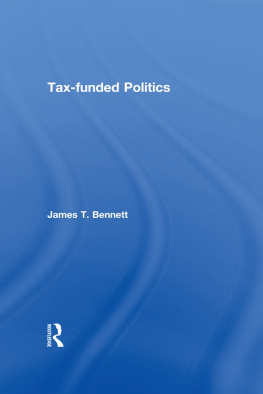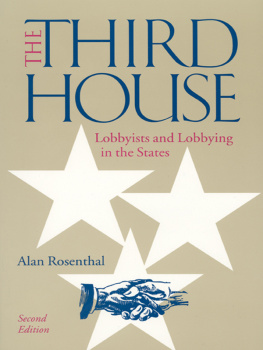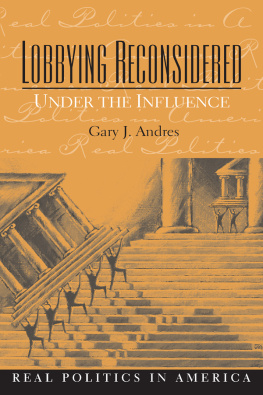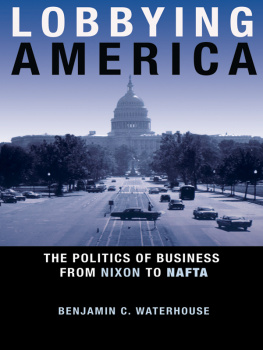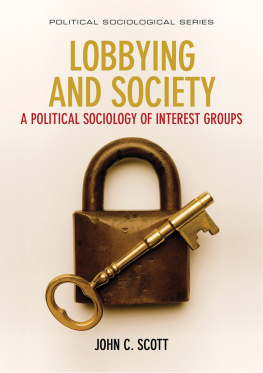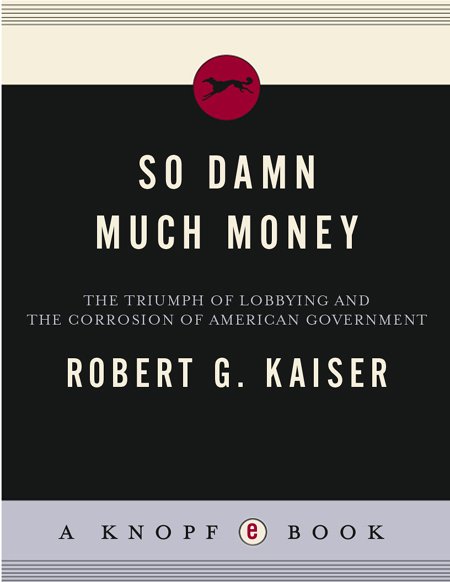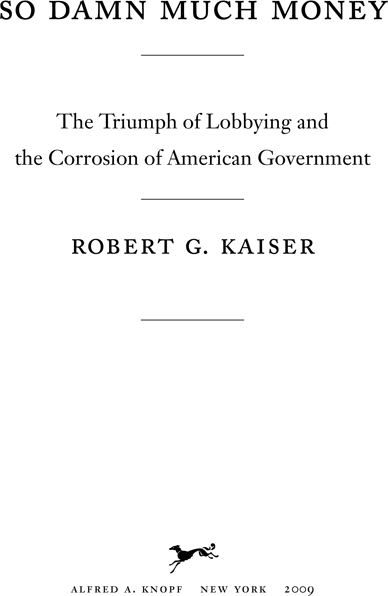ALSO BY ROBERT G. KAISER
The News About the News: American Journalism in Peril
(with Leonard Downie Jr.)
Why Gorbachev Happened: His Triumphs, His Failure and His Fall
Russia from the Inside
(with Hannah Jopling)
Great American Dreams: A Portrait of the Way We Are
(with Jon Lowell)
Russia: The People and the Power
Cold Winter, Cold War
For Paul Corso and Andy Sumner,
who kept me in the game
I seen my opportunities and I took em.
george washington plunkitt of tammany hall, early 1900s
Contents
CHAPTER 1

A SCANDAL FOR OUR TIME

In the early hours of February 22, 2004a cool, clear, late-winter day copies of the fat Sunday edition of The Washington Post landed on doorsteps and driveways throughout the nation's capital and its booming suburbs in Maryland and Virginia. Near the top of the front page, an arresting headline announced a scoop:
A JACKPOT FROM INDIAN GAMING TRIBES
LOBBYING, PR FIRMS PAID $45 MILLION OVER 3 YEARS
This was a seductive come-on in a city where making money was in vogue, and the story lived up to the enticement. The Post reported startling details about the exploits of a lobbyist named Jack Abramoff, then forty-six, and a public relations man who collaborated with him, Michael Scanlon, thirty-three. They had persuaded four Indian tribes flush with gambling money to pay huge fees to exploit Abramoff's connections with conservative Republicans in the White House and Congress to protect the tribes interests. At Abramoff's urging, the tribes also hired Scanlon to do unspecified public relations work.
The fees are all the more remarkable because there are no major new issues for gaming tribes on the horizon, according to lobbyists and congressional staff, reported the Post's Susan Schmidt. Abramoff persuaded the tribes that they needed his help to block powerful forces both at home and in Washington who have designs on their money, Schmidt wrote, quoting members of the tribes to this effect. She disclosed that the four tribes had donated millions of dollars to politicians and causes suggested by Abramoff, and had changed their traditional patterns of political contributions by giving less to Democrats and more to Republicansat his urging. Some members of the tribes Abramoff represented have begun to complain that they are getting little for their money, wrote Schmidt.
Neither Abramoff nor Scanlon was a household name in Washington. But Tom DeLay was, and DeLay's name appeared five times in that Post story. DeLay, a successful small businessman who ran an exterminating firm in the suburbs of Houston before he became a politician, was then the most powerful man in Congress. Everyone knew that DeLay had chosen Dennis Hastert of Illinois to become Speaker of the House of Representatives when that job suddenly came open in 1999. DeLay's title was majority leader, technically second-ranking to the speaker, but their colleagues understood that DeLay was smarter and tougher than Hastert, and more influential among House Republicans.
In the mid-1990s DeLay and his colleagues in the Republican leadership had struck a bargain with Washington's lobbyists that was both brazen and remarkably successful: if the lobbyists would help raise hundreds of millions of dollars to support Republicans and help preserve their majority in Congress, DeLay would invite them into the legislative process, and allow them to propose entire bills and suggest changes to legislation proposed by others.
Both sides fulfilled this understanding with gusto. The Republican National Committee and the party's House and Senate campaign committees, which collected $358 million in contributions in the two years prior to the 1994 elections when Republicans won control of Congress for the first time since 1952, reported contributions of $782 million a decade later, in 2003-04a 220 percent increase. Lobbyists and their clients helped make that possible. And lobbyists for corporate interests won countless legislative provisions from the Republican House and Senate favoring their clients. Under the accepted interpretation of the law on bribery, all of this was entirely legal. The law prohibits a member of Congress from corruptly seeking or accepting money in return for being influenced in his performance of any official act. That adverb corruptly speaks to intent, but it speaks vaguely. Corruptly has no clear legal definition. Absent evidence that the political contributions directly purchased the legislative results, quid for quo, both the contributions and the favorable legislative provisions were legal.
The Post story about Abramoff, Scanlon, and their Indian clients mentioned DeLay in three contexts: as a friend of Abramoff's with whom thelobbyist enjoyed a close bond; as Scanlon's former employer (Scanlon had been Representative DeLay's press spokesman in the late 1990s); and as one of the congressional leaders Abramoff had persuaded to defeat a proposal to tax Indian gambling earnings in 1995, when he had just begun representing Indian tribes. Abramoff used the argument then that the tribes were engaged in the same ideological and philosophical efforts that conservatives arebasically saying, Look, we want to be left alone.
With DeLay so prominently involved in this story, it quickly qualified as a scandal. Because Washingtonians tend to evaluate a scandal by the rank and power of those involved, this one looked juicy. A good scandal makes life richer and more interesting for nearly everyone in townapart from the involved parties. The Abramoff scandal arrived with impeccable timing, after eight years of Republican control of the House of Representatives that had brought lobbying and money to the forefront of public consciousness and changed the accepted standards of behavior in Washington.
The Post is the house organ of Washington's political class; virtually all its members read the paper every day. Its stories are grist for one of the world's most prolific gossip mills. On Monday morning, February 23, the Abramoff story was Topic A on Capitol Hill and across the city. On Tuesday the 24th, a Republican congressman from the Washington suburbs of Virginia, Frank Wolf, released a letter to the attorney general and the director of the FBI asking them to investigate relations between the Indian tribes and Abramoff and Scanlon. On Thursday the 26th, Senator John McCain announced an investigation by the Committee on Indian Affairs, which he chaired. The reported fees paid by Indian tribes to Abramoff and Scanlon were disgraceful, McCain said. Now the story had legs.
In a press release on March 3, Abramoff's law firm, Miami-based Greenberg Traurig, announced that he was leaving the firm. Abramoff had brought riches to his partners in the three years he had worked there, but now a member of its executive committee said Abramoff had disclosed to the firm for the first time personal transactions and related conduct which are unacceptable.


